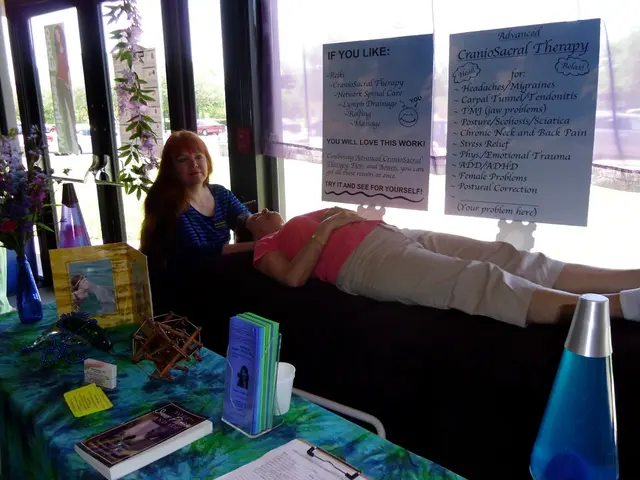Withstanding the Urge for Overexertion
In today's fast-paced world, it's easy to fall into the trap of overwork. However, a growing body of evidence suggests that the goal of work should not be to overwork, but rather to live a fulfilling life, both personally and professionally. Here are five strategies to help you resist the pressure to overwork and achieve a sustainable work-life balance aligned with your personal goals, values, and skills development.
1. **Set Clear Boundaries and Prioritize Personal Goals**
Establishing defined working hours and a dedicated workspace are crucial steps to physically and mentally separate work from personal life. Committing to these hours strictly ensures time for yourself and your priorities outside work. Creating a routine that includes regular breaks and time dedicated to activities that reflect your personal values and goals, such as hobbies, family, or fitness, is equally important. Recognizing your limits by setting realistic expectations about what you can achieve in a day is also key to avoiding overcommitment.
2. **Practice Effective Time Management and Task Prioritization**
Using techniques like setting priorities, to-do lists, or time management methods (e.g., the Pomodoro technique) can help you stay focused on high-value tasks and avoid unnecessary overtime. Learning to delegate tasks both professionally and personally can free up time for skill development and activities that nurture your well-being.
3. **Align Work with Personal Values and Skills Development**
Becoming aware of what drives your tendency to overwork—whether it’s perfectionism, external pressure, or unclear goals—and consciously redirecting your efforts towards activities that foster your growth and well-being is essential. Setting personal development goals and allocating time for learning new skills or hobbies that enrich your life and career satisfaction helps maintain motivation without burnout.
4. **Communicate Openly and Seek Support**
Maintaining clear communication channels with your supervisors and colleagues about your workload and boundaries is essential to ensure transparency and accountability. Discussing flexible working arrangements or hybrid work options that can support your balance is also beneficial. Seeking help from mental health professionals if stress or burnout tends to derail your balance efforts is crucial.
5. **Prioritize Self-Care Without Guilt**
Dedicating time to self-care activities such as exercise, hobbies, and social interactions that replenish your physical and mental energy is not a luxury but a necessity for long-term balance and productivity.
By integrating clear boundaries, conscious prioritization, delegation, communication, and self-care, you foster not just work-life balance but a meaningful alignment with your values and aspirations. This approach improves well-being, satisfaction, and long-term success both professionally and personally.
It's important to remember that overworking can negatively impact both physical and mental health. Success in work is not determined by the amount of time or effort put in, but by effectiveness within the assigned time. Prioritizing and optimizing work can lead to increased effectiveness. Focus on deep, personal goals, solving difficult problems, and contributing to society. Rejecting a request for overwork initially may be uncomfortable, but it strengthens your ability to resist overwork in the future.
Consider people who have achieved success without overworking as role models, especially those within your work or network. If team leaders ask you to work more to finish the work, it may indicate abusive behavior. Establish clear boundaries and consider moving to another team or workplace if the behavior continues. Companies should provide psychological safety, empower decision-making, and celebrate failures to nurture leadership development. They should also encourage risk-taking, promote diversity and inclusion, and invest in leadership development programs to foster leadership.
- A focus on health-and-wellness, both physical and mental, can be achieved through regular exercise, hobbies, and social interactions, which should not be considered luxuries but necessary for long-term balance and productivity.
- The goal of work should be to live a fulfilling life, both personally and professionally, and this can be achieved by aligning work with personal values and skills development, setting personal development goals, and delegating tasks to free up time for self-care and skill development.
- In the realm of education-and-self-development, recognizing your limits and setting realistic expectations about what you can achieve in a day is key to avoiding overcommitment, while also seeking support from mental health professionals when needed for overall mental health and well-being.




